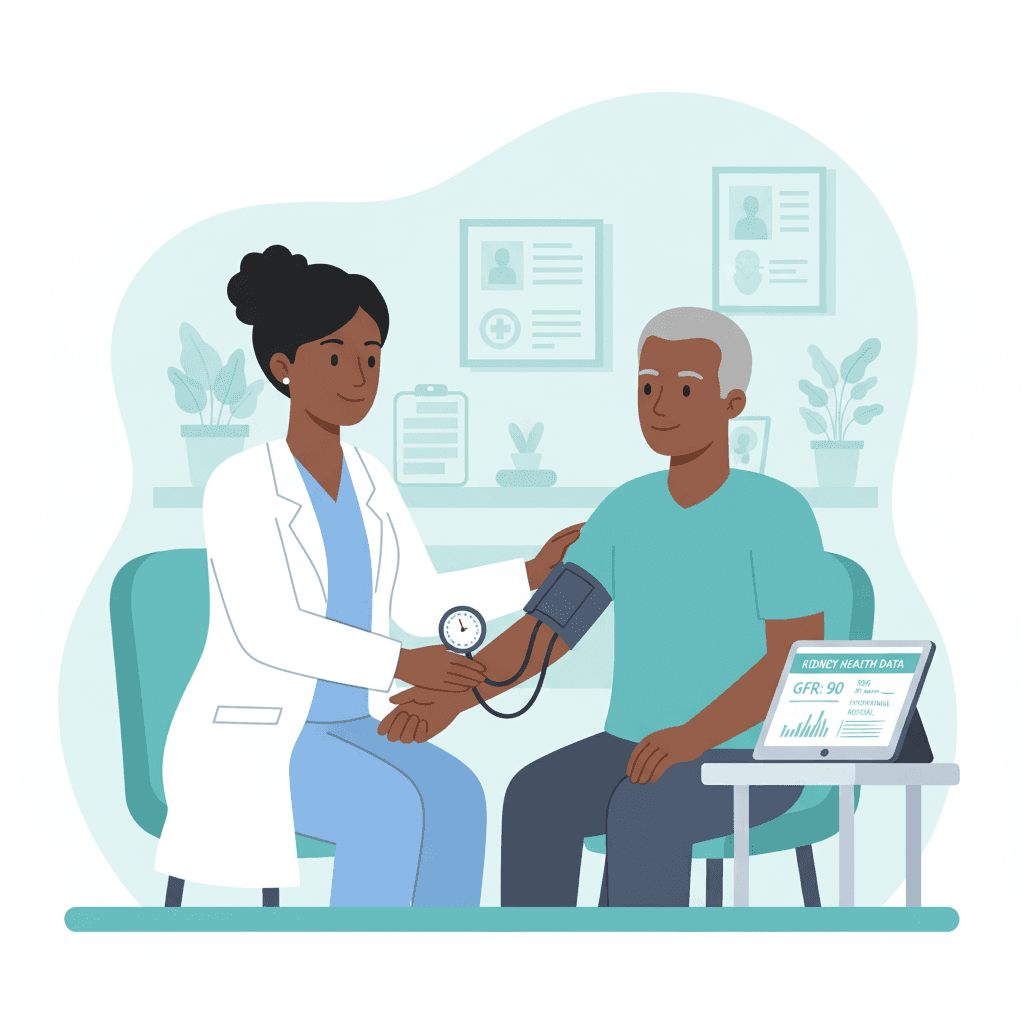Newly Diagnosed with Chronic Kidney Disease (CKD)
Your Journey Starts Here – Understanding and Managing CKD
A Chronic Condition, but Manageable with the Right Care
Understanding CKD: What Does It Mean for You?
Being diagnosed with CKD can be overwhelming. Chronic Kidney Disease is a long-term condition that can affect kidney function over time. However, with proper management, it's possible to slow the progression and maintain a good quality of life. The earlier the diagnosis, the better the chance of managing the disease effectively.

Create a Health Management Plan with Your Doctor
Steps to Take After Diagnosis
After being diagnosed with CKD, it's crucial to take steps to manage the condition. Work with your healthcare provider to create a plan that includes medications, lifestyle changes, and regular monitoring. This may involve adjusting your diet, controlling blood pressure, and possibly taking medications to protect kidney function.

Diet, Exercise, and Stress Management
Lifestyle Adjustments and Healthy Habits
Making lifestyle changes is key in managing CKD. A kidney-friendly diet, regular physical activity, and stress management can improve kidney health. Reducing sodium intake, maintaining a healthy weight, and staying active are some of the most important adjustments. Remember that small changes can make a big difference over time.

Coping with the Emotional Impact of a CKD Diagnosis
Managing Your Emotions and Mental Health
Being diagnosed with CKD can be emotionally challenging. It's normal to experience feelings of fear, anxiety, or sadness. Seeking emotional support through counseling or support groups can help you process these emotions. Your mental health is as important as your physical health in managing CKD.

Stay on Top of Your Kidney Health
Regular Monitoring and Check-ups
Regular visits to your healthcare provider are essential to monitor kidney function. This typically involves routine blood and urine tests, blood pressure checks, and discussions about your symptoms or any changes in your condition. Early intervention can help prevent complications and slow down the progression of CKD.

